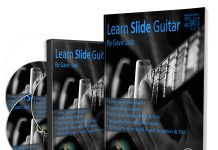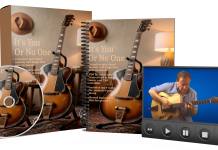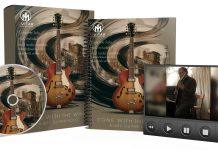This post may contain affiliate links. As an Amazon associate, Google associate as well as associate for other programs, Guitar & Music Institute may earn commissions from qualifying purchases.
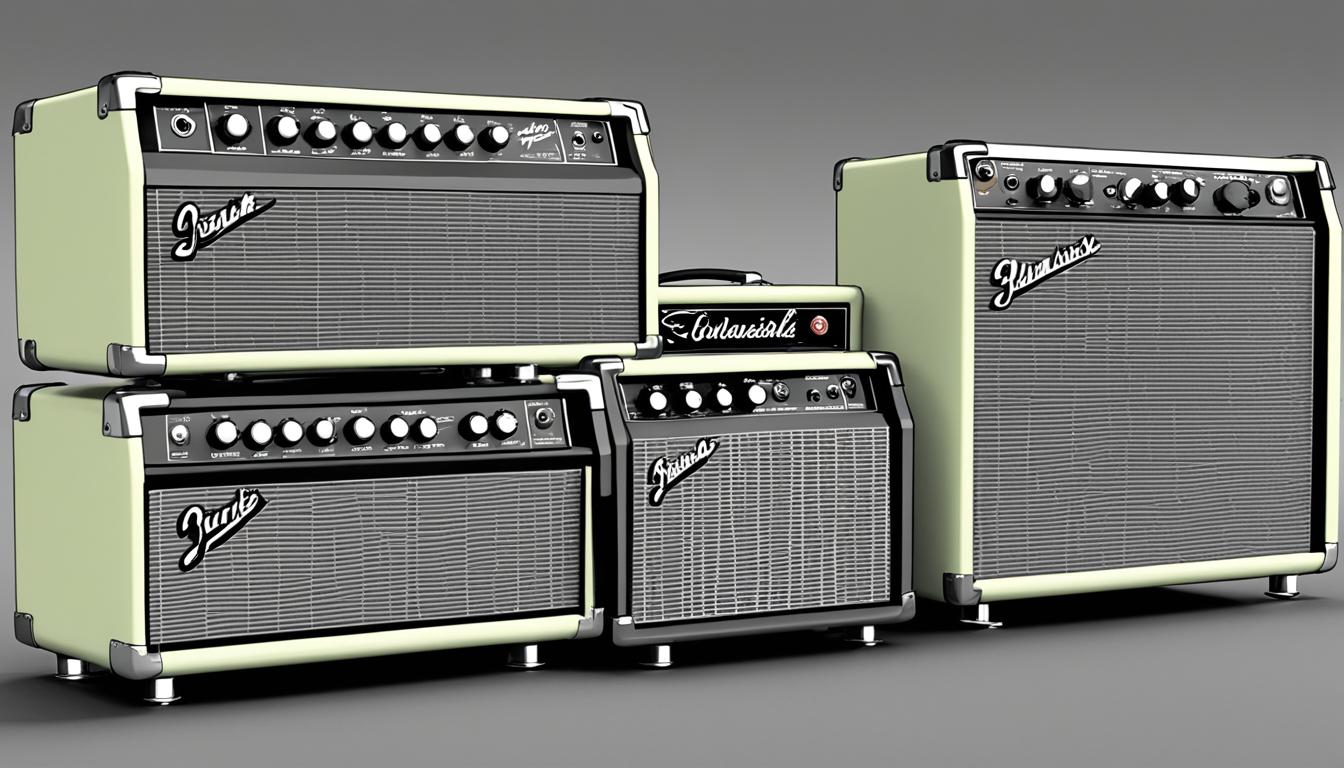
7 Mistakes to Avoid with New Guitar Amps Purchases
Buying a new guitar amplifier requires careful thought to avoid mistakes. Mistakes can result in bad sound, hassle, and money loss. By knowing these mistakes, you can confidently buy your next guitar amplifier. Let’s look at 7 potential mistakes to steer clear of when getting a new guitar amplifier.
Whether you’re experienced or new to guitars, it’s crucial to avoid common errors. Think about the music you play, amp size, and how easy it is to move it. This guide gives you essential tips for choosing the right amplifier.
Buying A Guitar Amp For Beginners
Are you starting on guitar and looking to improve? Picking the right guitar is key, yet the perfect amp is just as crucial. When buying your first guitar amp, consider a few important things. These tips will help you find the best amp for you.
1. Consider the type of music you play
First, think about your favorite music style. Amps vary, with some better for certain music genres. If you love heavy rock, look for an amp with built-in distortion. But for acoustic or jazz, seek a clean, warm tone. Knowing your music style helps pick the right amp for your sound.
2. Pay attention to the size and portability of the amp
For beginners, your amp’s size and ease of moving it matter. Small amps are great for home. Big amps suit performances. A portable amp is good for those who travel. It should be easy to carry and still sound great.
3. Determine the desired volume and wattage
Think about how loud you’ll play. Home practice doesn’t need high wattage. But playing with a band or at venues does. Loud and powerful amps have higher wattage. Balance the amp’s volume with what you need.
4. Explore different tone and effects options
Trying out tones and effects is fun. Some beginner amps have effects like reverb or delay. Decide if you want many effects or prefer a simple sound. Your amp should fit your current style and let you explore as you get better.
5. Seek recommendations and read reviews
Look up different amps and read what others say. Advice from seasoned players is helpful. You can learn the good and bad about amps. Plus, trying amps in stores lets you feel and hear what’s best. This step is key to finding your ideal amp.
By keeping these points in mind, you’re set to choose a great amp as a beginner. Your guitar and amp should match well to improve your music.
6. Don’t Just Consider Big Brand Names
The biggest names in guitar amp design are there for a reason; consistency in build quality, features and performance for a competitive price. There are, however, many small amp makers who offer not only great products, but bespoke design.
Look out and research the myriad of amazing guitar amplifiers made by small companies run by tight knit teams. This has been one of the greatest things that has come with the internet, discoverability.
7. Expensive Doesn’t Necessarily Mean Best
Finally, it’s human nature to think that the more you spend, the better something will be, but sadly this isn’t always the case. Try a blindfold test if you’re thinking of shelling out a sizeable chunk of money when playing various amps, you might get a surprise!
Recommended Guitar Amps For Beginners
If you’re starting on guitar, you need a good amp. Some great choices include the Mustang Micro, Frontman 10G, Mustang LT25, Champion 50XL, and Mustang 50GTX.
These amps have cool features. They offer portability, built-in effects, and many amp models. You’ll find one whether you like a small amp or a louder one. These beginner amps will make your guitar sound amazing.
Consider the Type of Music You Play
The type of music you play really matters when you’re buying a guitar amp. Different types of music need specific tones and effects from an amp. For example, if rock or metal is your thing, look for an amp with high-gain and distortion.
This will get you that heavy sound these styles need. But, if jazz or country is more your style, you want an amp that’s clean and warm. Picking the right amp will make your music sound great and support your musical adventure.
Consider the Amp Size and Portability
Thinking about getting a guitar amplifier? Size and how easy it is to carry matter a lot. If you play mainly at home or don’t have much space, go for a small amp. These little amps pack a good sound and are easy to handle in tight spots. They’re perfect for those who need quality sound without the bulk.
If you perform live or play in big places, you’ll need a bigger amp. Bigger amps are louder and can fill up a room with your music. They make sure your guitar sounds strong during live shows, so everyone can hear you.
Do you travel a lot with your music? Then, a portable amp might be what you need. Portable amps are light and easy to take anywhere. They’re ideal for rehearsals, shows, or just jamming with friends. Many can even run on batteries, letting you play anywhere.
Think about what you’ll use the amp for to make the best choice. A smaller amp suits practice at home, while a bigger one works for shows. Picking the right amp size and considering if it’s easy to move can really help your music.
Let’s look at the Roland Cube Street EX as an example. It’s a great choice for playing music on the move. This amp has two powerful speakers for clear, strong sound. It also offers lots of inputs, effects, and can work on batteries, making it versatile for musicians on the move.
Consider the Amp Volume and Wattage
Choosing the right guitar amp means thinking about volume and wattage. The wattage tells you how loud an amp can get. If you play in big places or with a band, you’ll need an amp with more power. But for playing at home, a less powerful amp is enough.
The volume control on an amp is also key. It lets you set the sound level you like, from quiet to loud. This feature helps you adjust your sound for any setting or style.
Think about where you’ll be playing when picking an amp. Whether it’s solo practice, small shows, or big concerts, get an amp that fits. The right wattage and volume controls will help you get the sound and loudness you want.
Remember, amps with more power are louder but can be heavy and big. If you move around a lot or play in small places, choose a lighter, smaller amp. It can still give you great sound without being hard to carry.
Consider the Material
When picking an amp for your guitar, think about the materials used to make it. The type of material can change the sound and how long the amp lasts.
Materials like wood or metal can make the sound different. For instance, wood gives a warm, natural sound, while metal offers a sharper tone. Knowing the differences helps you pick the right sound.
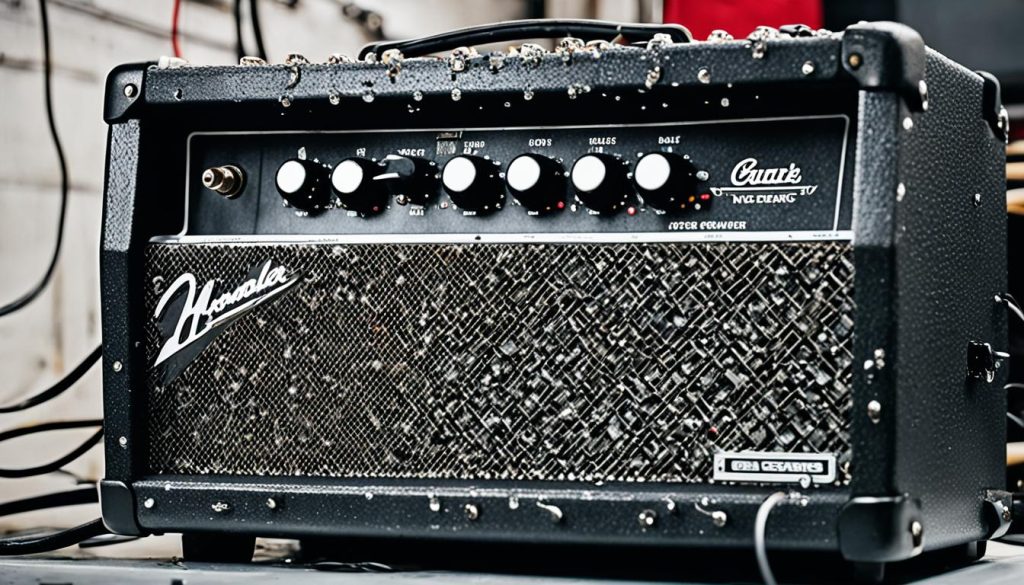
The material also affects how long the amp will last. Some materials can handle rough use better, making them great for gigs. Others might get damaged easily or need more care.
Thinking about the material helps you find an amp that sounds good and is durable. Whether you like a wooden amp’s warm sound or metal’s toughness, material choice matters a lot in your experience.
Consider the Guitar Amp Tone and Effects
Choosing the right guitar amp is key. Think about the tone and what effects it offers. The power to tweak your amp’s tone and try out different effects can make playing more fun. You get to shape the sound just how you like it with tone controls like bass, mid, and treble.
Many amps also have cool effects built in. You can find options like reverb, delay, or distortion. These effects help you add layers, moods, and creative twists to your music. They let you experiment with all sorts of sounds, from lush vibes to edgy overdrives.
Looking at the tone and effects is smart when picking a guitar amp. This way, you’ll get one that lets you play in your unique style. Whether you’re into clean jazz tones, rock’s edgy distortion, or experimental sounds, the right effects and tone are vital. They help you share your music vibe uniquely.
The Different Types of Guitar Amps
Guitar amps come in various types, each with its own feel and benefits. Knowing the different guitar amps helps you pick one that fits your style and needs.
Tube Amps
Tube amps, or valve amps, are loved for their warm, rich sound. They work with vacuum tubes to boost the guitar’s signal. This gives a sound that responds well to how you play. Tube amps create a natural distortion at high volumes, for that classic sound.
Solid-State Amps
For reliability and a good price, solid-state amps are a top choice. They amplify sound using semiconductor devices. This makes for a clear, steady tone. Solid-state amps last long and are great for those who want versatility with less fuss.
Modeling Amps
Modeling amps are perfect for players wanting lots of sounds and effects. They use digital tech to mimic many amplifier sounds and effects. With a modeling amp, you can explore tones and effects without extra gear.
Hybrid Amps
Hybrid amps give you the best of both tube and solid-state amps. They have a tube preamp for warmth and a solid-state power amp for steadiness and cost-efficiency. These amps are ideal for those who like both vintage and modern sounds.
By knowing the various guitar amps – tube, solid-state, modeling, and hybrid – you can find the one that matches your style, needs, and budget. Whether you love vintage sounds, want many options, or look for a bargain, there’s an amp for you.
Conclusion
Choosing the right guitar amplifier matters a lot. It helps you get the sound you want and improves how you play. Make sure you don’t pick an amp that doesn’t fit your sound or is too big. Also, don’t ignore the extra features it may offer.
Think about your music style, how big the amp is, and if it’s easy to carry. Also, consider how loud it needs to be, its power, and what it’s made of. It’s important to look at the tone and what kind of effects it has too. This way, you avoid common mistakes and buy an amp that’s just right for you.
FAQ
Q: What mistakes should I avoid when buying a new guitar amplifier?
A: When getting a new guitar amp, think about your music type. Also, consider amp size, how easy it is to move, and the volume. Don’t forget to check the material and what tones and effects it offers.
Q: What factors should I consider when buying a guitar amp for beginners?
A: For a beginner’s guitar amp, you should think about your music style. Size and how easy it is to carry matter too. Look at the volume, wattage, and what tones and effects it has.
Q: What are some recommended guitar amps for beginners?
A: Some top beginner guitar amps are the Mustang Micro, Frontman 10G, Mustang LT25, Champion 50XL, and Mustang 50GTX. These amps have great features and are easy for beginners to use.
Q: How does the type of music I play affect my choice of a guitar amplifier?
A: Your music genre affects your amp choice. Rock or metal might need a high-gain channel and distortion. Jazz or country often requires a cleaner sound.
Q: What should I consider when it comes to the size and portability of a guitar amplifier?
A: Think about where you’ll play when choosing an amp’s size. For home use or small spaces, small amps work best. For gigs or large venues, go for bigger amps with more volume.
Q: How do I determine the volume and wattage of a guitar amplifier?
A: Consider what you need in an amp’s volume and wattage. High wattage is good for big places or bands. Lower wattage fits practice at home. Having volume control lets you adjust your sound.
Q: How does the material of a guitar amplifier affect its sound quality and durability?
A: Amp materials impact sound and durability. For example, wood or metal affects the tone and resonance. The material choice also influences how long the amp lasts.
Q: What should I consider regarding the tone and effects options on a guitar amplifier?
A: Amps offer different tones and effects. Tone controls let you adjust your sound, including bass, mid, and treble. Effects like reverb and distortion can make playing more fun. Look for an amp that lets you try out these options.
Q: What are the different types of guitar amps available?
A: Guitar amps come in types like tube, solid-state, modeling, and hybrid. Tube amps have a warm sound. Solid-state are reliable and cheaper. Modeling amps mimic various sounds, and hybrid amps mix tube and solid-state features.
Q: What are some final thoughts on guitar amplifier buying mistakes?
A: To avoid errors, think about your music style, the amp’s size, and if it’s easy to move. Check the volume, what it’s made of, and the sound effects it has. This way, you’ll pick the best amp for you.
Source Links
- https://www.fender.com/articles/parts-and-accessories/guitar-amp-buying-guide
- https://www.theguitarhead.com/blogs/guitar-tips/guitar-amplifier-102-using-your-first-amp
- https://www.artistguitars.com.au/buying/7-common-mistakes-when-buying-your-first-guitar/575
This post may contain affiliate links. As an Amazon associate, Google associate as well as associate for other programs, Guitar & Music Institute may earn commissions from qualifying purchases.


